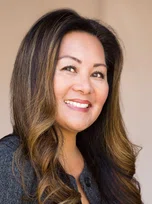Equity administrators call us to action
Equity Corner by Tracie Noriega
December 4, 2023

When it comes to any district position with the word “equity” in the title, I’ve always experienced an internal tug-of-war. The opposing teams in my head say, “Everyone in the system should hold the equity work” and “We need a specific position that helps us stay conscious of the work.” And here I am, with the title of Senior Director of Diversity, Equity, Inclusion, and Educational Services. I appreciate the concise definitions of diversity, equity and inclusion from the Sacramento State Antiracism & Inclusive Campus Action Plan (2021):
Diversity — A complex and robust variety of people from various racial, ethnic, cultural backgrounds, ancestry, lifestyles, experiences, interests, social economic status, abilities, gender, sexual orientation and expression.
Equity — Inclusive access to resources, opportunities and to experiences; the intentional and systemic actions taken to address historical and predictable differential outcomes.
Inclusion — The conscious action and practice to ensure equal access to resources, opportunities and participation for those who might otherwise be excluded.
At the ACSA Leadership Summit last month, keynote speaker Dr. G.T. Reyes stated that learning about equity is not equity work, that equity work requires action, actually DO-ing something. He challenged us to be “praxisioners,” combining theory and active practice. Critical consciousness also comes to mind. It is what Paulo Freire has defined as “the ability to recognize oppressive social forces shaping society and to take action against them.”
With that, let’s look to the definition of inclusion that states, “the conscious action and practice.” Let’s then consider, how do we recognize oppression and how it manifests itself in the educational system? How do we consciously, intentionally, explicitly act to create change?
The folks that contemplate questions such as these, or are tasked with acting on these questions, are the equity administrators throughout the state. There are approximately 50 ACSA members who have “equity” in their titles. Examples of these titles include:
- District Coordinator of Diversity, Equity, Inclusion, and Compliance.
- Asst. Superintendent, Equity, Access & Community Engagement.
- Executive Director of Equity and Social Justice.
Most of the districts that they serve are in Southern California and the majority of folks in this cohort are from BIPOC communities. As ACSA has provided job-a-like spaces for co-administrators, principals and superintendents, I decided to throw out an invitation to our equity administrators, and a number of them answered the call.
When asked what they needed in this space, the majority of folks provided an answer that spoke to being around others that understood their specific challenges. When asked what they wanted the space to feel like, sound like and look like, here are examples of their responses:
- A safe place to ask questions, share resources and feel supported.
- Feels like home … sharing experiences and challenges.
- Encouraging and uplifting.
- A place to share strategies for responding to those opposing DEI work.
- Restorative, healing and affirming. The spirit of aloha!
The sentiments that used to war in my head about DEI positions have concluded that really it is not one or the other, but both. It is everyone’s responsibility to DO equity work AND we need people who keep us focused on doing the work.
We need praxisioners. These praxisioners, our DEI administrators, are doing some outstanding work for students. They also need our support. These folks hold a lot on their shoulders, just the word “equity” in their titles is an incredibly heavy lift. Do you have a DEI administrator in your district? Is there someone who leads the work, but doesn’t have the title? Does your system create conditions that support their work and help them to feel they are not alone?
As you read this, please check in on them and ask them how they are doing and what they might need. Centering the humanity in this work goes a long way.
Tracie Noriega is ACSA’s Senior Director of Diversity, Equity, Inclusion, and Educational Services.



